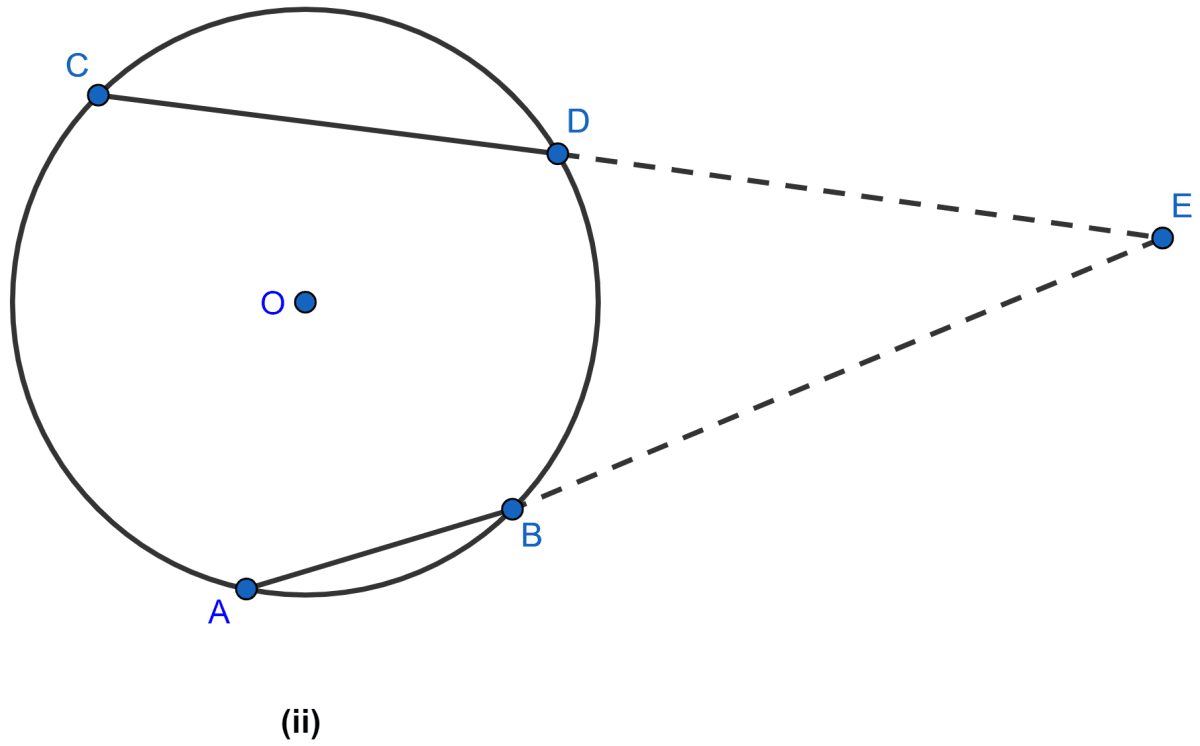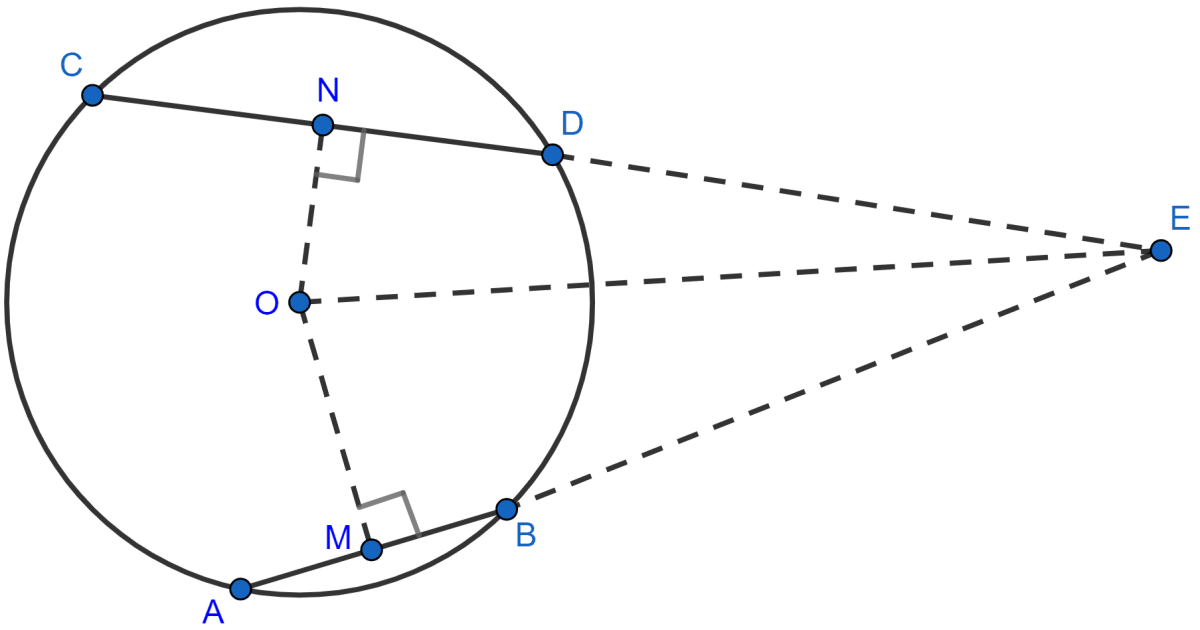Mathematics
In the figure (ii) given below, AB and CD are equal chords of a circle with center O. If AB and CD meet at E (outside the circle) prove that
(i) AE = CE
(ii) BE = DE.

Circles
39 Likes
Answer
Draw ON ⊥ CD and OM ⊥ AB. Join OE.

(i) Since, equal chords are equidistant from the center of the circle,
∴ ON = OM.
In △ONE and △OME,
ON = OM
∠ONE = ∠OME (Both equal to 90°)
OE = OE (Common side)
∴ △ONE ≅ △OME (By R.H.S. congruence rule).
∴ NE = ME = y (let) (By C.P.C.T.) ……..(1)
Let AB = CD = x.
Since, the perpendicular to a chord from the centre of the circle bisects the chord,
∴ CN = ND = and
AM = MB = .
From figure,
AE = AM + ME =
CE = CN + NE =
Hence, proved that AE = CE.
(ii) From figure,
BE = ME - MB =
DE = NE - ND =
Hence, proved that BE = DE.
Answered By
29 Likes
Related Questions
In the figure (ii) given below, chords AB and CD of a circle with centre O intersect at E. If OE bisects ∠AED, prove that AB = CD.

In the figure (i) given below, AD is a diameter of a circle with center O. If AB || CD, prove that AB = CD.

If arcs APB and CQD of a circle are congruent, then find the ratio of AB : CD.
A and B are points on a circle with center O. C is a point on the circle such that OC bisects ∠AOB, prove that OC bisects the arc AB.